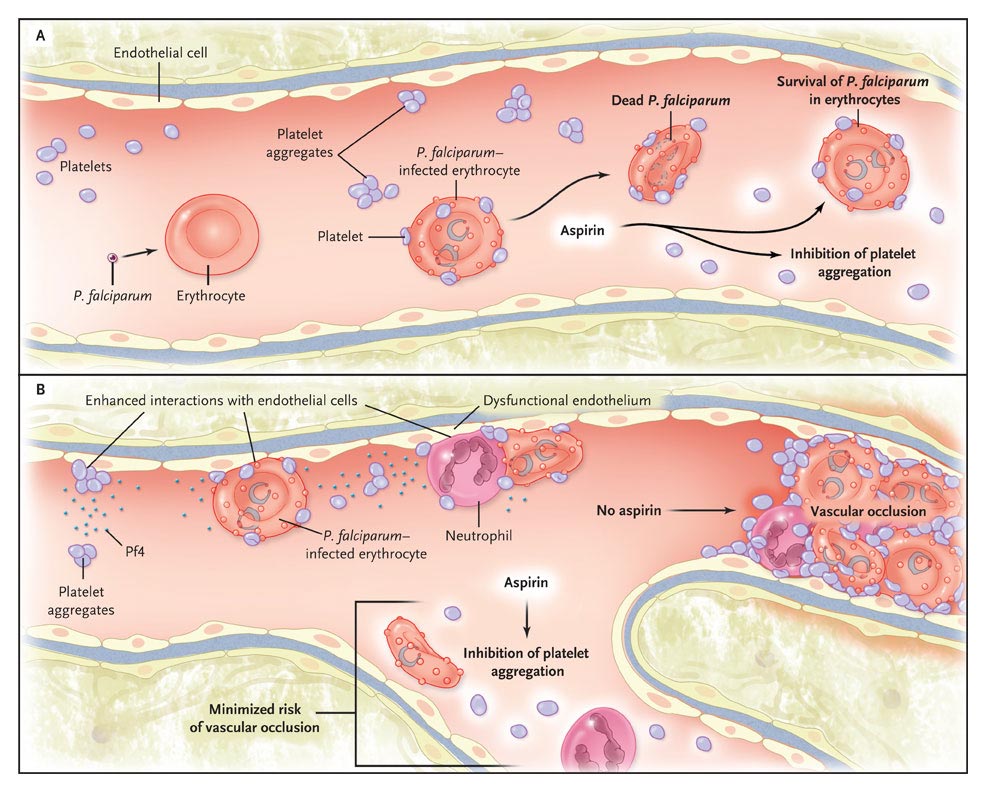NEJM:Volume 361:526-528

McMorran et al.3 recently reported that erythrocytes infected with Plasmodium falciparum activate platelets and induce the formation of platelet–erythrocyte complexes that result in the killing of parasites (Panel A). Inhibition of platelet activation through the use of aspirin (or platelet depletion by means of genetic manipulation) limited, but did not abolish, erythrocyte infestation with a similar, but distinct, parasite — P. chabaudi — in mice. Thus, if these observations can be extrapolated to P. falciparum infection in humans, aspirin treatment for pyrexia in the early stages of malaria may be undesirable. In contrast, Srivastava et al.4 described a setting in which platelet inhibition with aspirin might be desirable (Panel B). They showed — using mice infected with another related parasite, P. berghei — that platelet factor 4 (Pf4) released by platelets (after activation by dysfunctional endothelium) facilitates an interaction between endothelial cells and erythrocytes, exacerbation of cerebral malaria, and, potentially, vascular occlusion.





 留言列表
留言列表
 線上藥物查詢
線上藥物查詢 